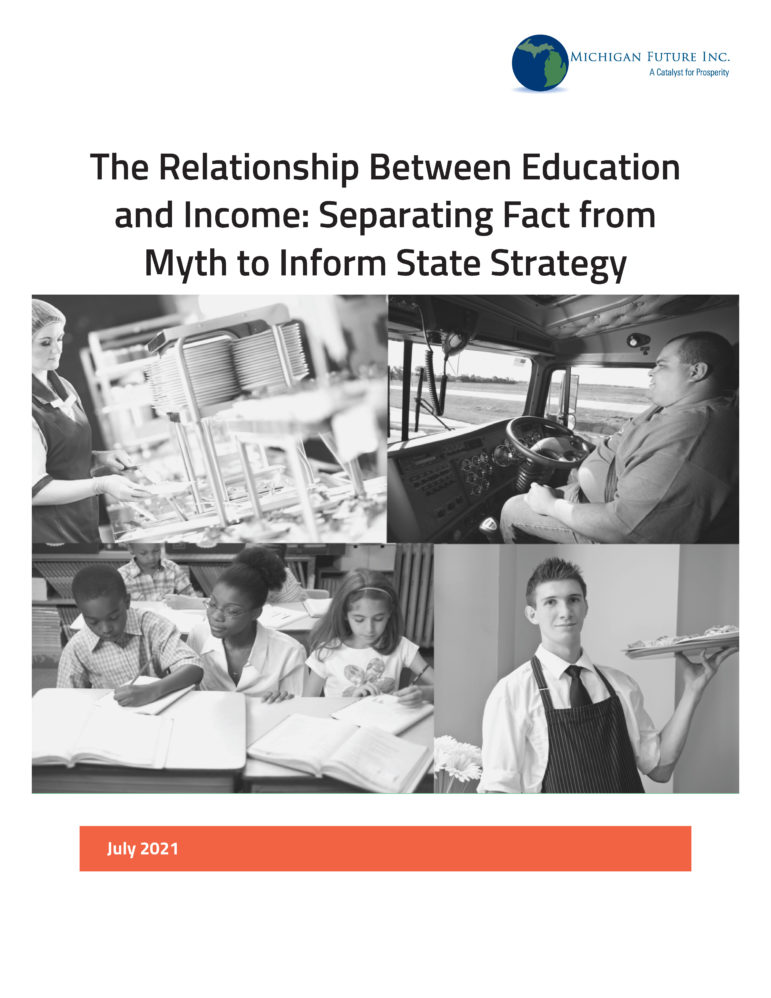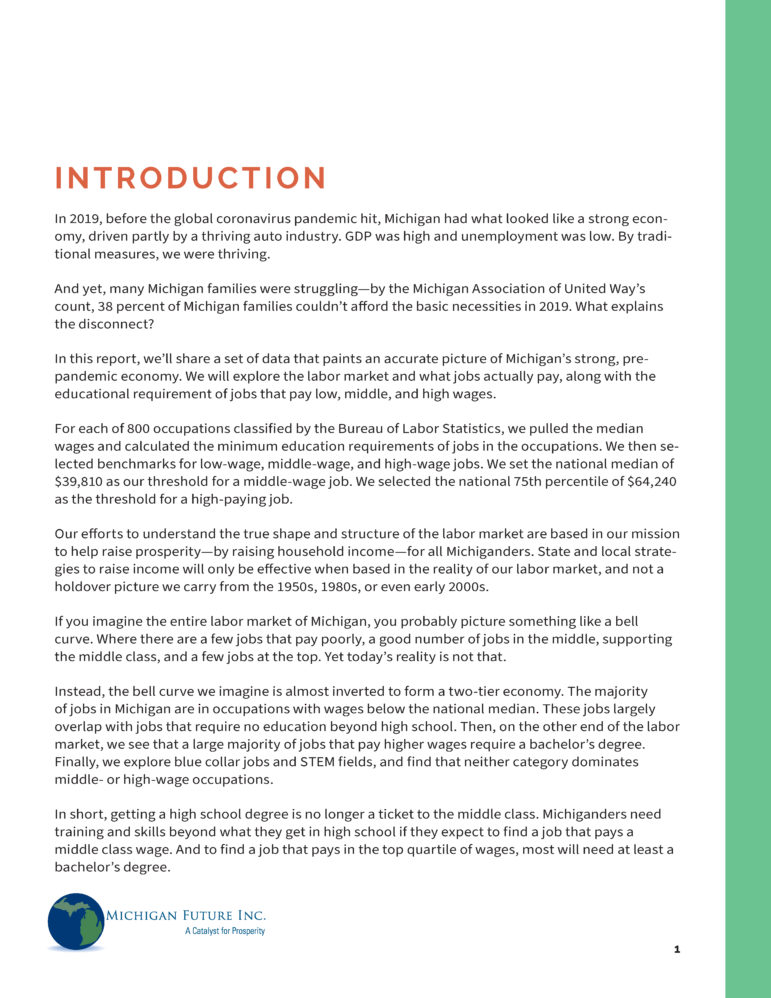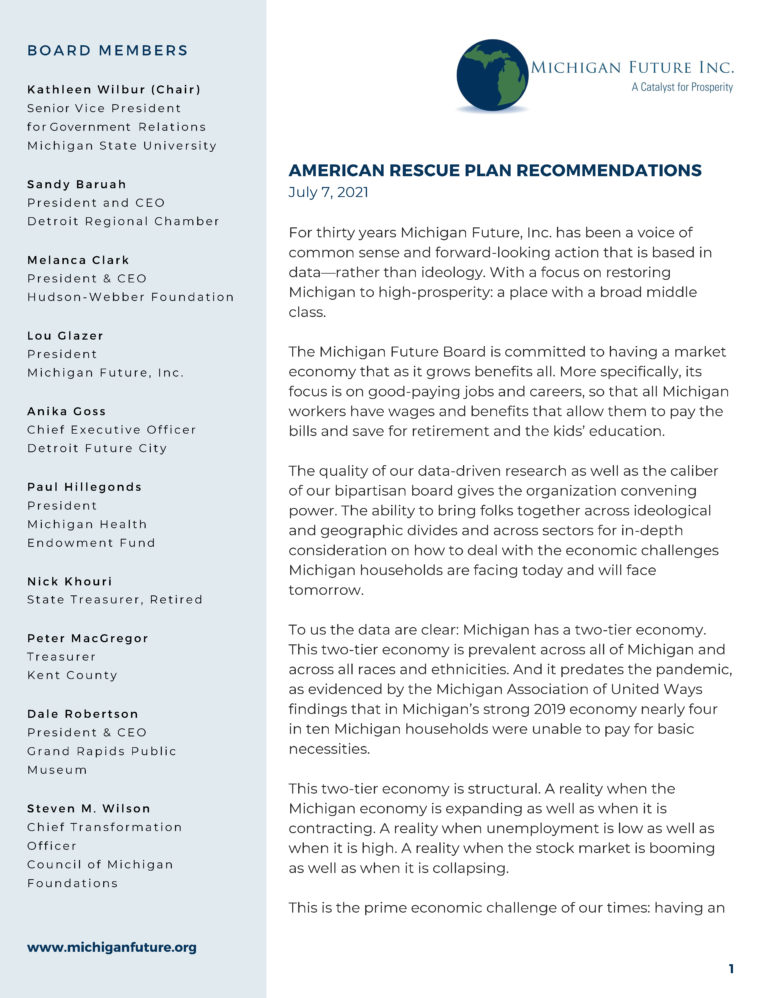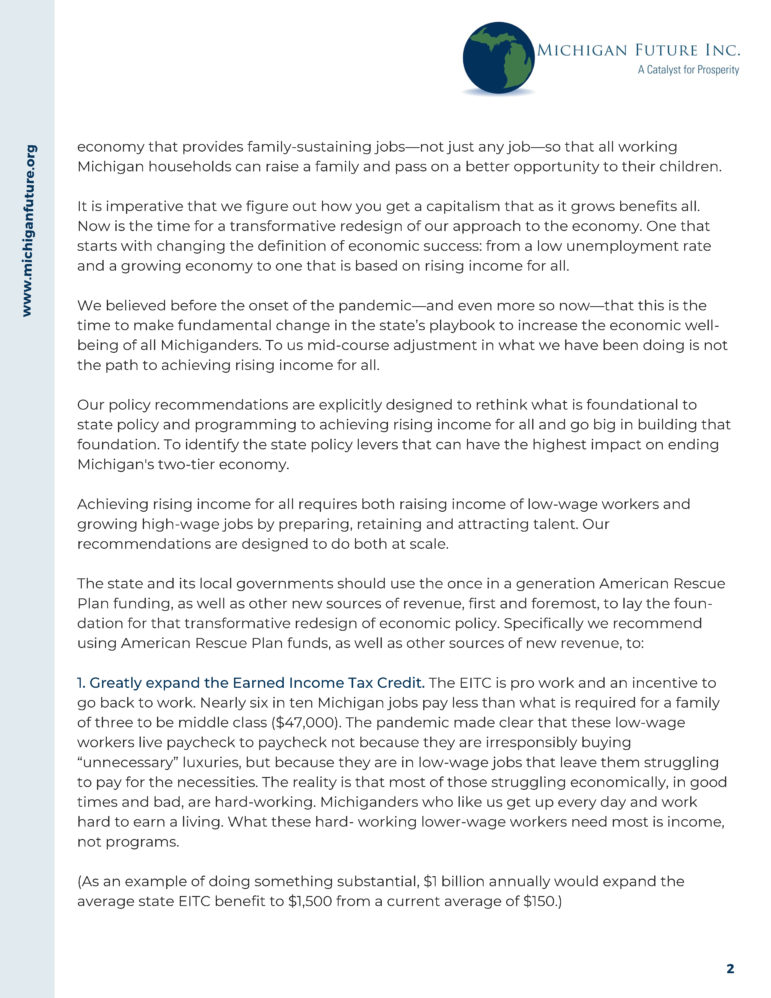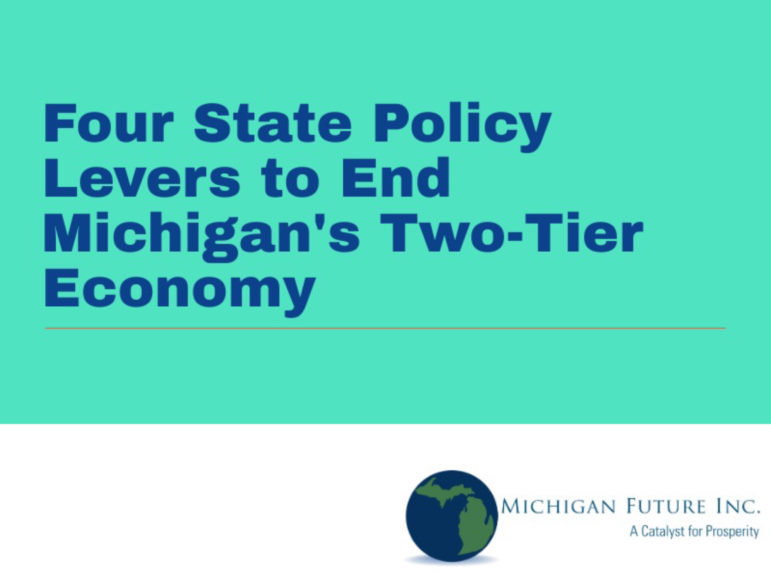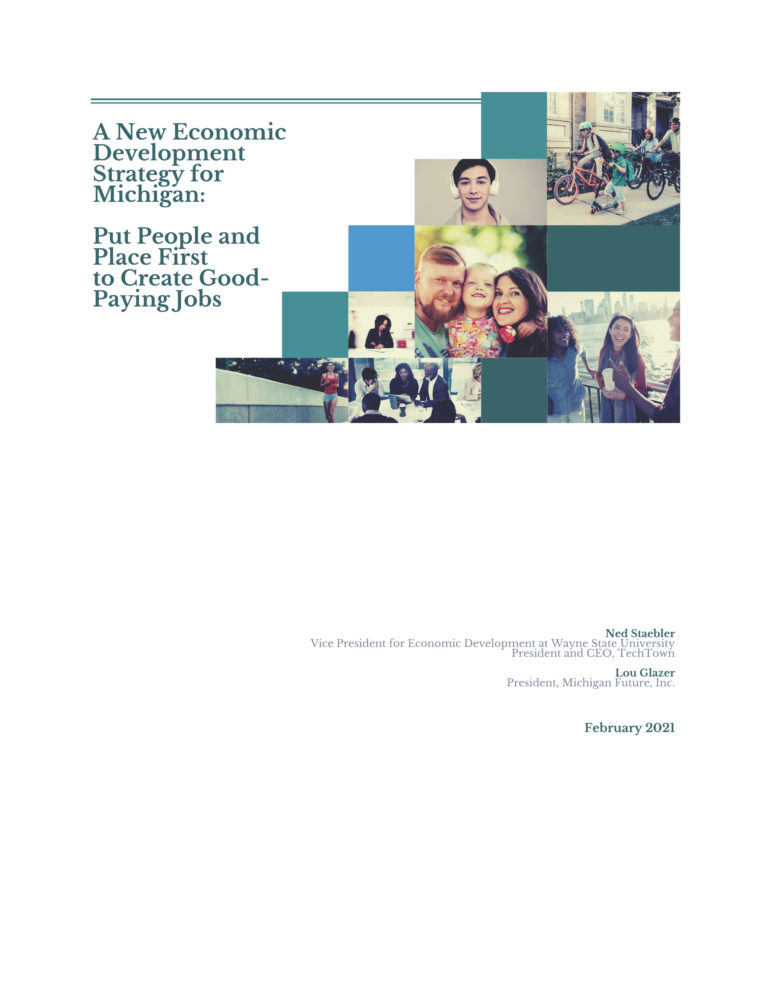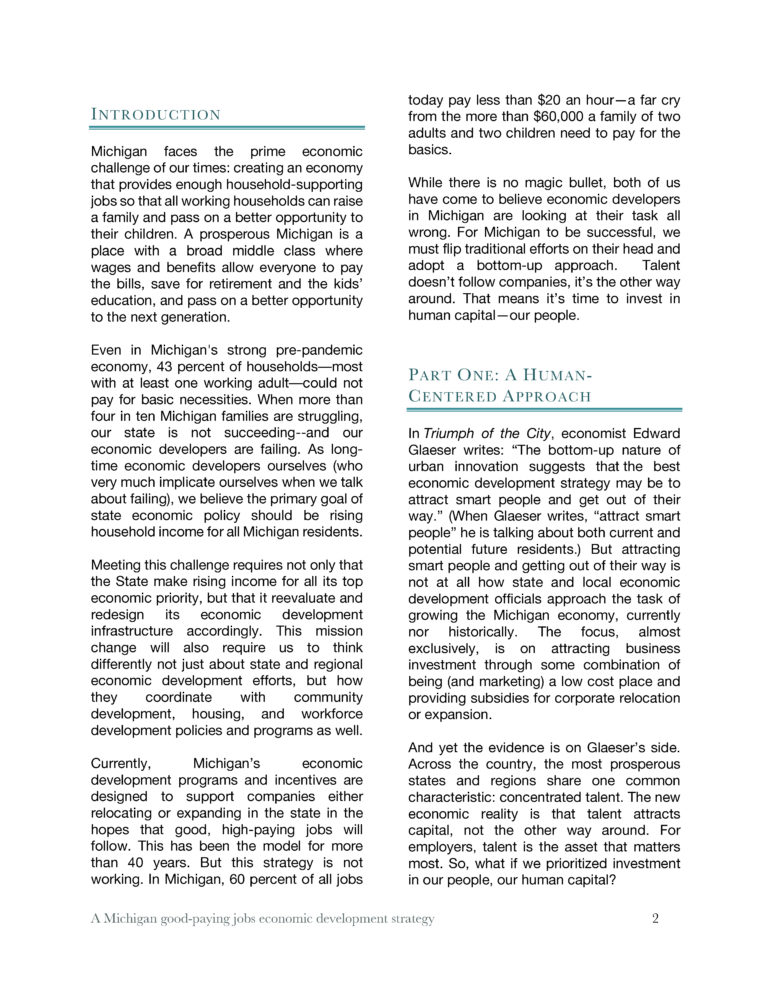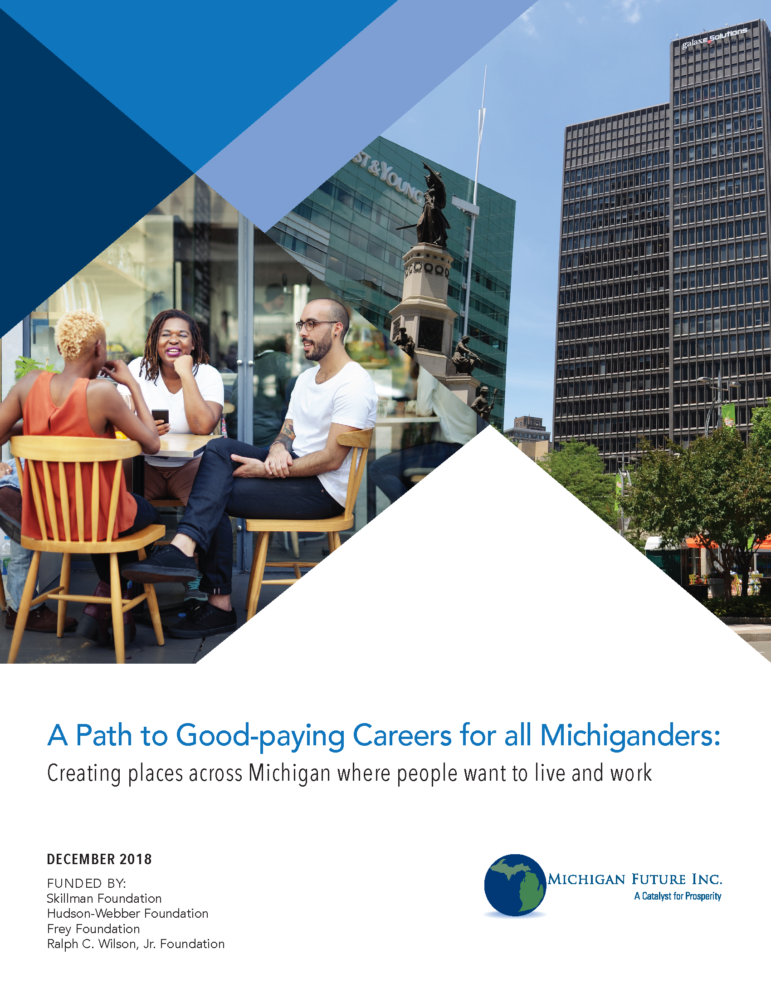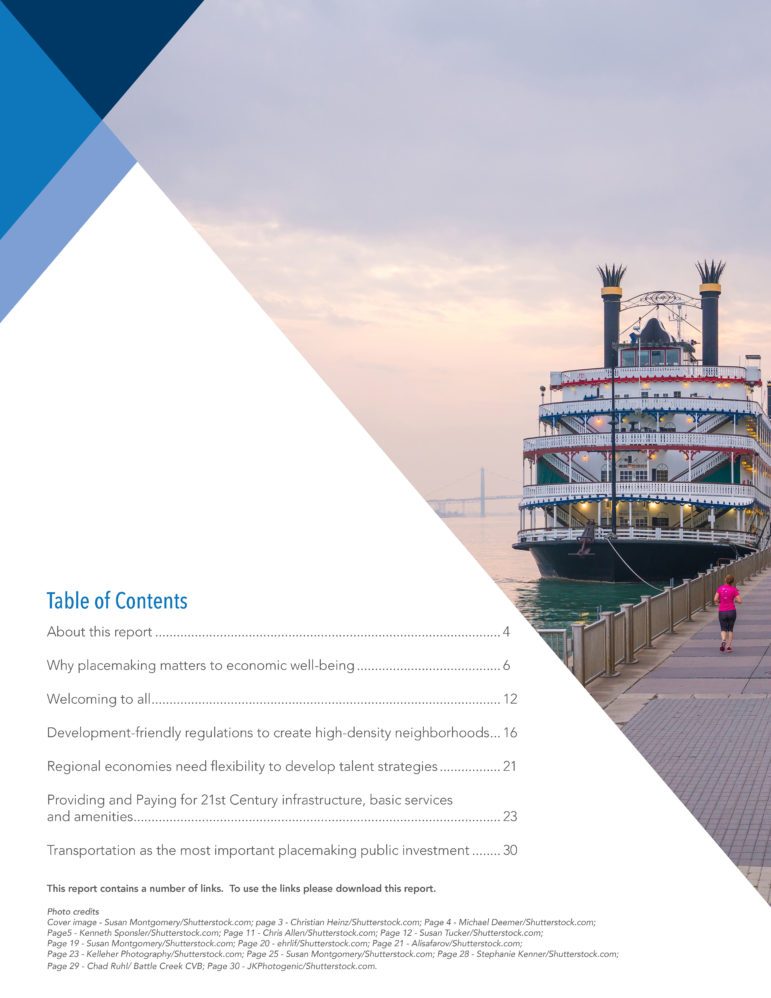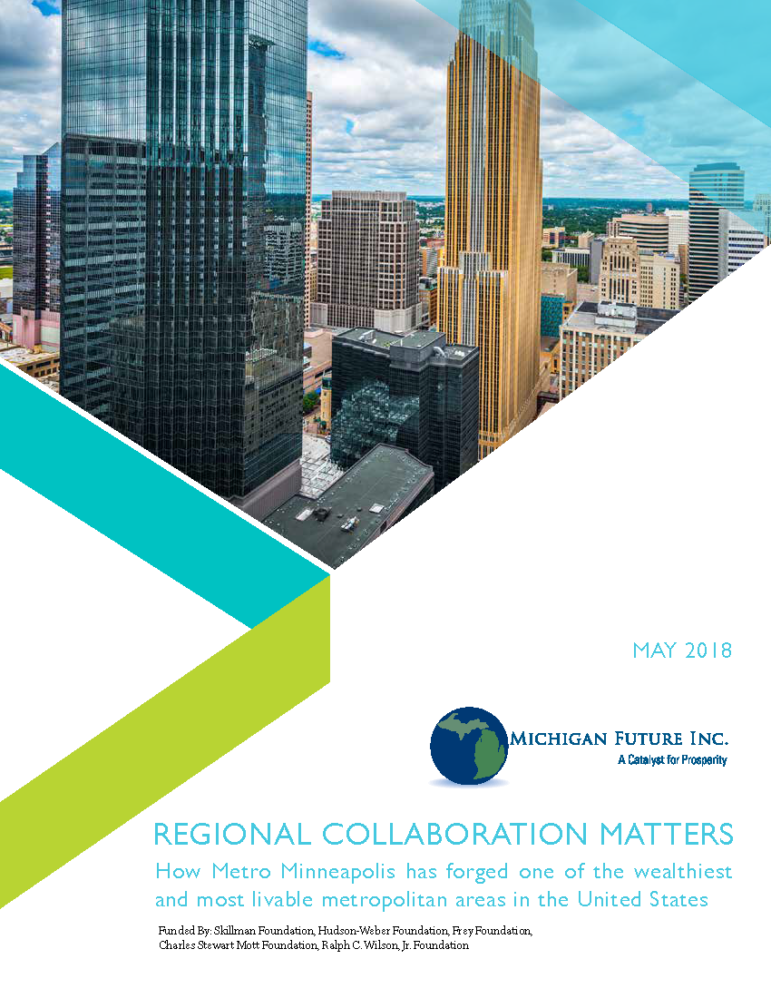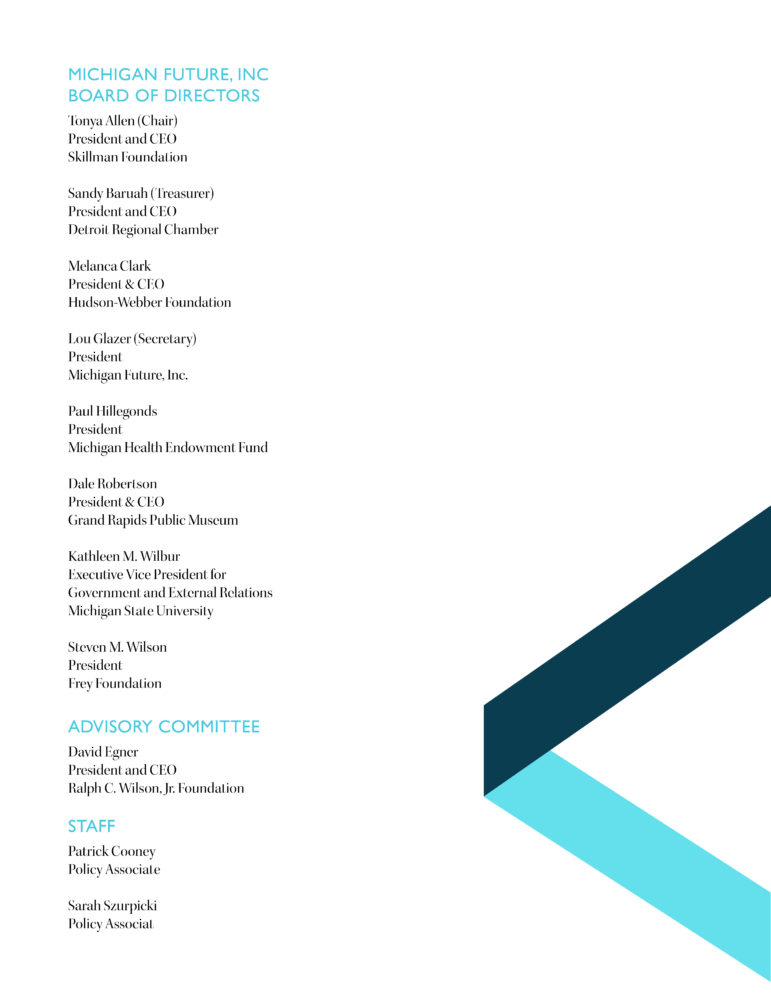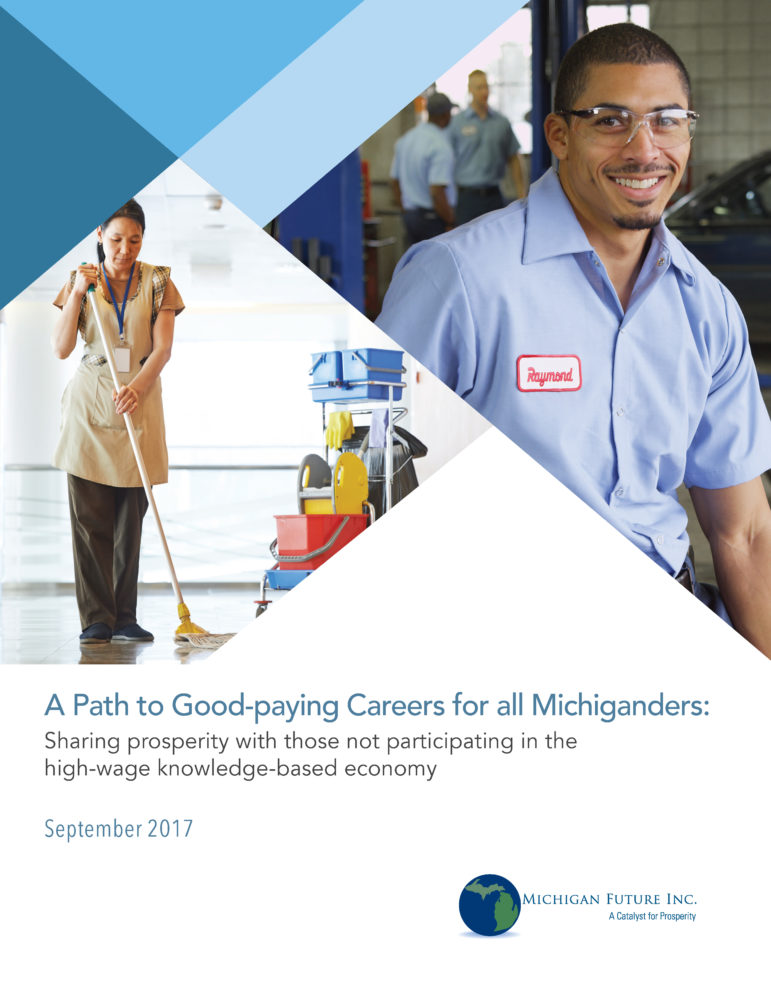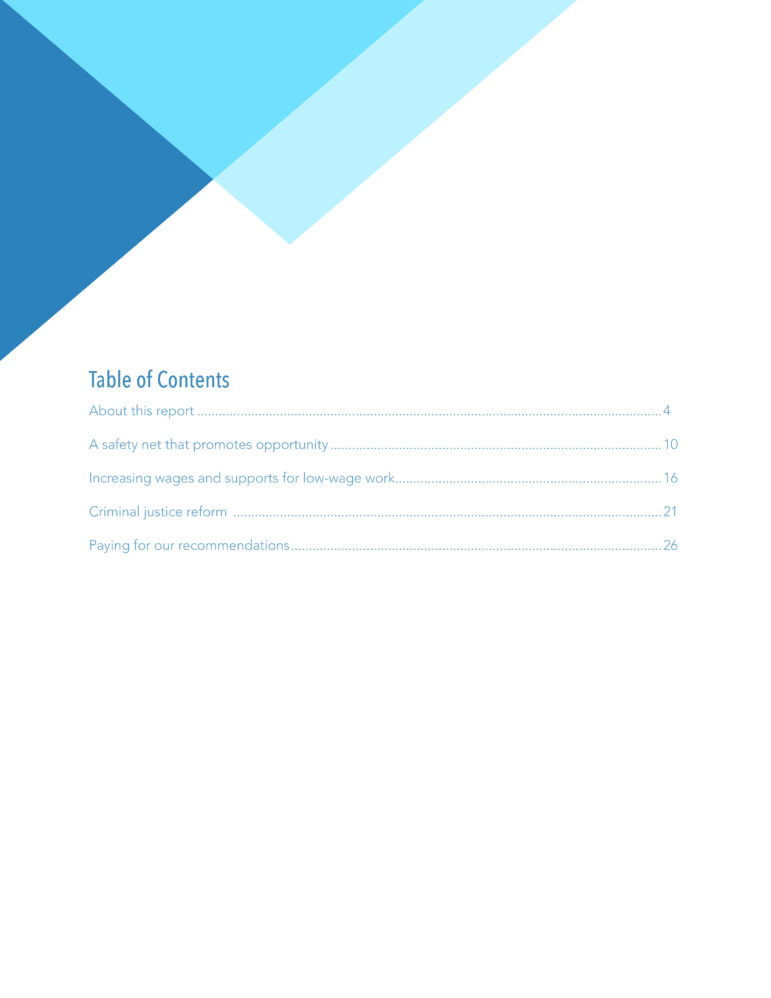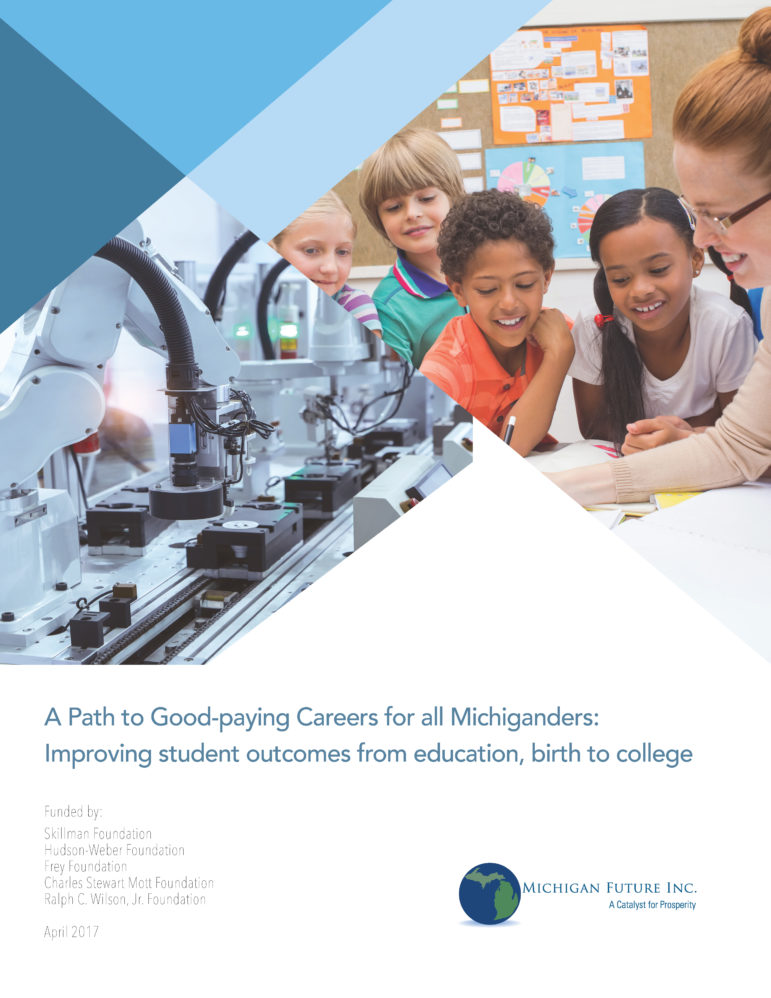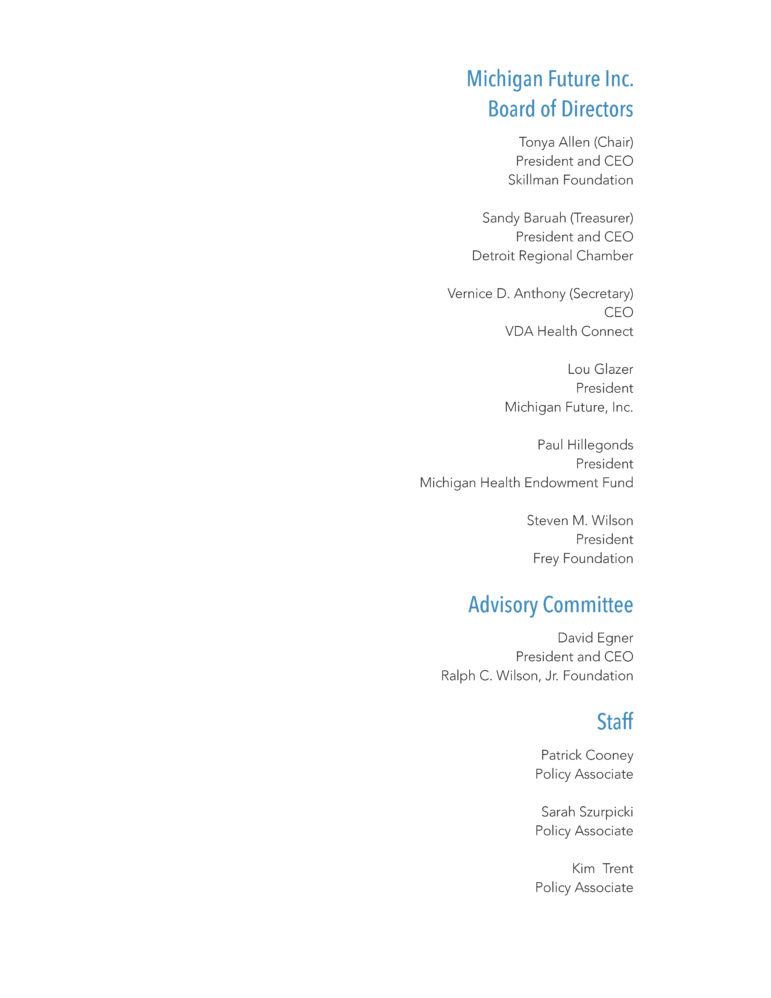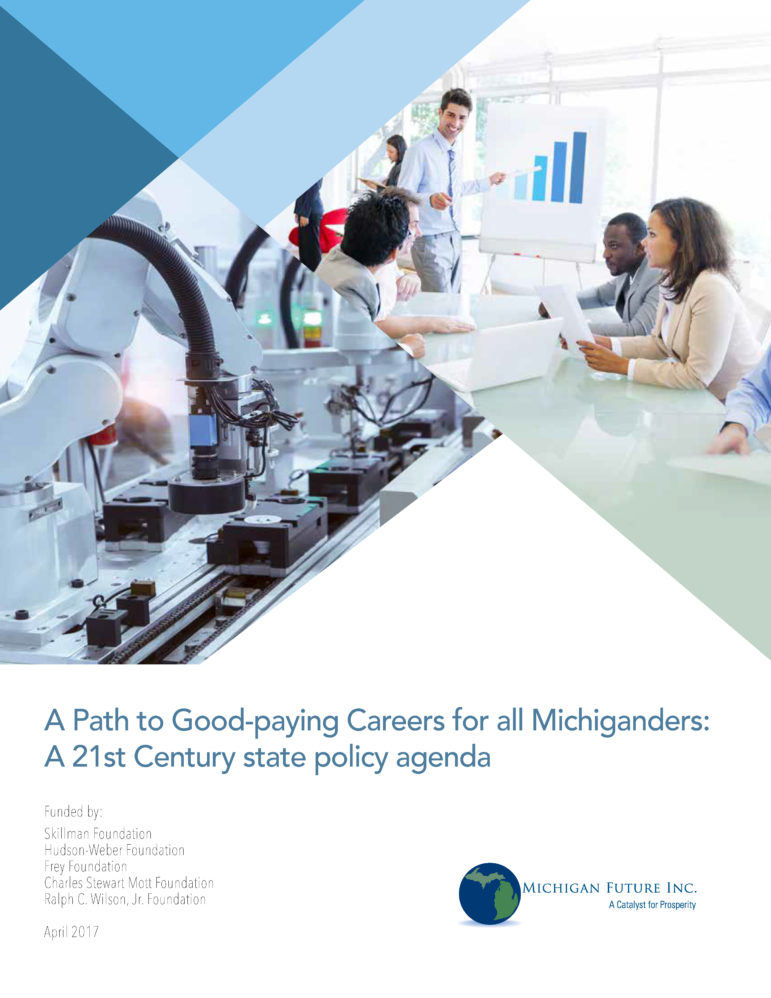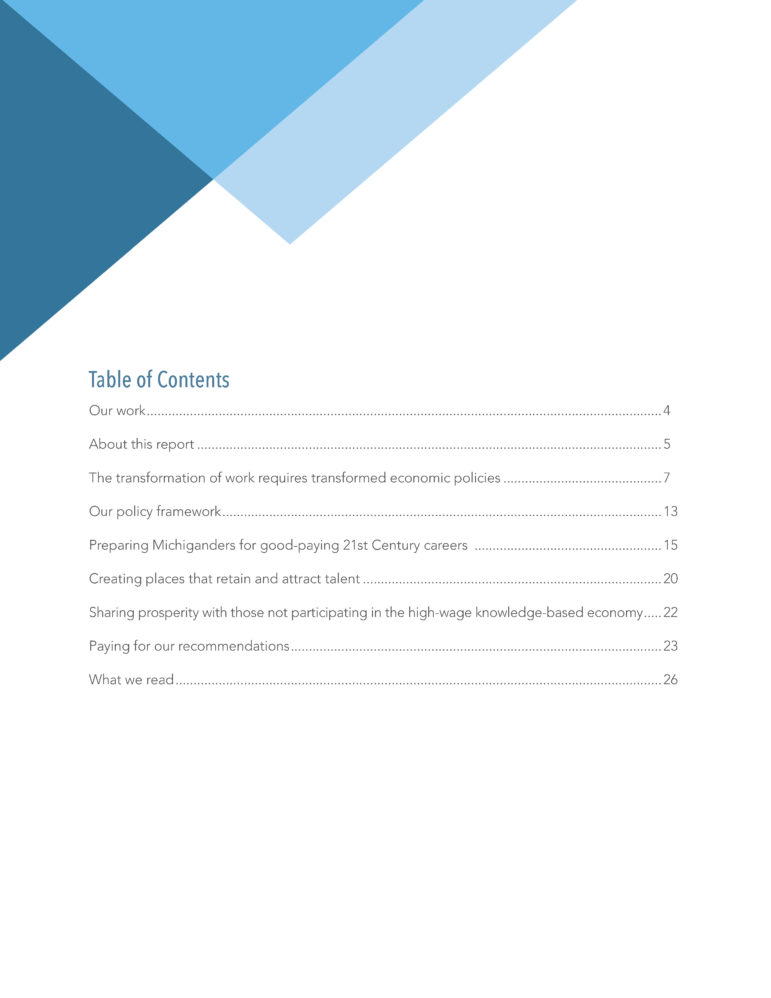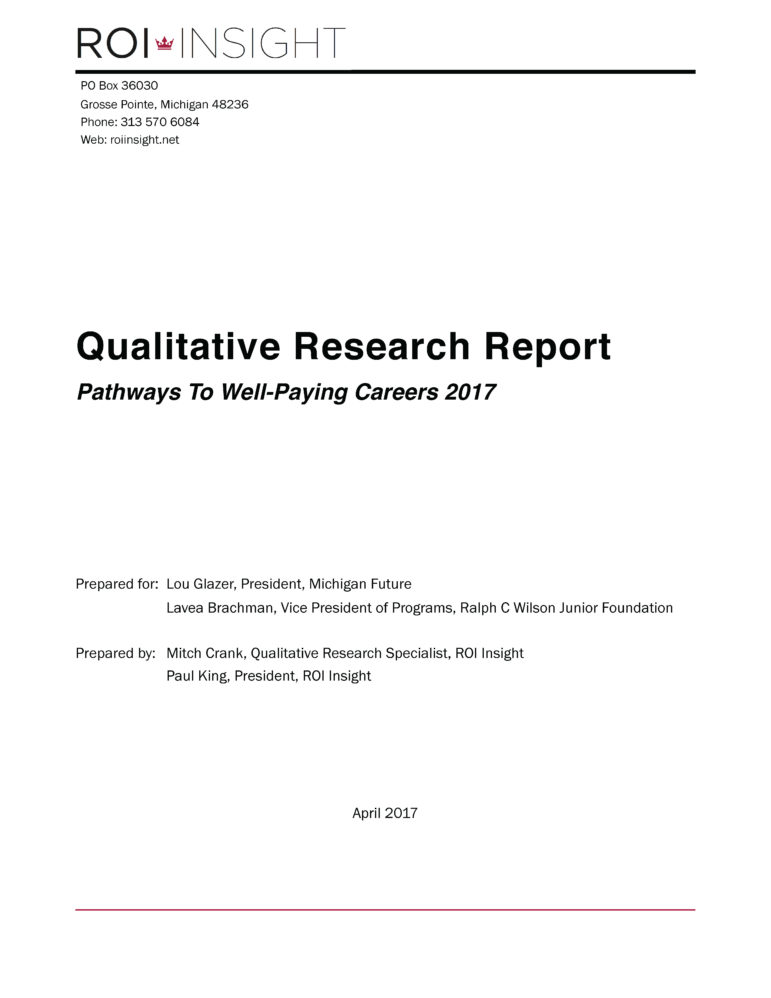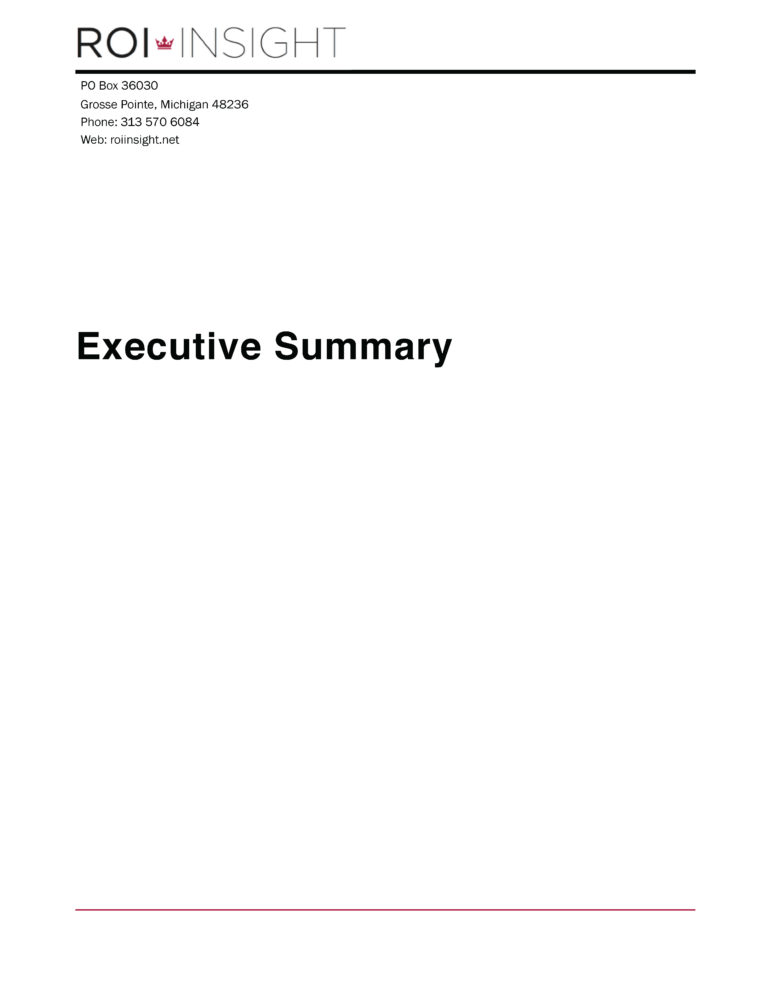In this report, we’ll share a set of data that paints an accurate picture of Michigan’s strong, pre pandemic economy. We will explore the labor market and what jobs actually pay, along with the educational requirement of jobs that pay low, middle, and high wages.
At Michigan Future Inc. we believe American Rescue Plan funding should be used to pivot to a new economic development strategy. One with a mission of rising income for all. What follows is the recommendations of the Michigan Future Board on how to use this once in a generation funding to pivot to a new approach to recreate a Michigan economy that as it grows benefits all.
September 2021
The Michigan Association of United Ways recently reported that in Michigan’s strong pre-pandemic 2019 economy 38 percent of Michigan households were unable to pay for basic necessities. So in what many called the best U.S. and Michigan economy ever, nearly four in ten Michigan households did not earn enough to pay for housing, child care, food, transportation, health care, and a smartphone plan, plus taxes and a miscellaneous contingency fund equal to 10% of the budget.
The evidence is clear that it’s time to stop a failed economic development strategy that invests state resources in businesses, and reorient towards investments in talent.
In this commentary, first published by Bridge and co-written with Ned Staebler of Wayne State’s Office of Economic Development and TechTown, we argue that economic developers in Michigan are looking at their task all wrong. For Michigan to be successful, we must flip traditional efforts on their head and adopt a bottom-up approach. Talent doesn’t follow companies, it’s the other way around. That means it’s time to invest in human capital – our people.
Michigan lags the nation in having communities that are powerful talent attractors. We are in desperate need of a placemaking vision that allows all of its regions to develop and implement their own strategies to be places where people want to live, work and play. And it needs to make sure that metro Detroit and metro Grand Rapids are able to compete with talent magnets like Chicago and Minneapolis.
In our new report, we spell out why placemaking is so critical, and what we believe are the most impactful state policies to improve the attractiveness of communities across the state.
A few years ago, we released the first report in our policy series, which explored the state policies that have made Minnesota the most successful state in the Great Lakes region. We decided to go back to Minnesota again, with a similar question. How has metro Minneapolis become the 12th most prosperous major metropolitan area in the entire country? This report explores what we can learn from how metro Minneapolis drives wealth and prosperity in Minnesota.
This report offers detailed ideas on how state policymakers can implement the shared prosperity recommendations in our state policy report: A Path to Good-paying Careers for all Michiganders. As with that report, our goal is to offer ideas that will engage readers in a conversation about how Michigan can meet the economic challenges of the future.
This report offers detailed ideas on how state policymakers can implement the education recommendations in our state policy report: A Path to Good-paying Careers for all Michiganders. As with that report, our goal is to offer ideas that will engage readers in a conversation about how Michigan can meet the economic challenges of the future.
This report is about state policy. It is a reflection on what we have learned from 25 years of researching and writing about the national and Michigan economies. And what we have learned from two long-term human capital development projects we were involved in: The Reducing Chronic Unemployment Initiative and the Michigan Future Schools High School Accelerator. Although both provided services exclusively to residents of the City of Detroit, we believe our learnings are applicable across the state.
The basic conclusion of our years of research: Michigan will not have a mass middle class again until we transition to the knowledge economy that is the path to prosperity in the 21st Century.
This report lays out a state policy agenda designed to connect people to a career of good-paying work in the context of an economy constantly being reshaped, largely by technology.
The Ralph C. Wilson Jr. Foundation (RCWJF), in partnership with Michigan Future, hired ROI Insight to design and execute a multi-modal study exploring current factors impacting workers’ earning power and career success. Utilizing a series of 8 open ended focus groups, this report follows the paths of individuals without college degrees making an annual income of at least $40,000. Incorporating both qualitative and quantitative methodologies, the primary objective of this report is to gain an understanding of how focus group participants achieved successful careers and how their experiences can inform policy and investment decisions.

